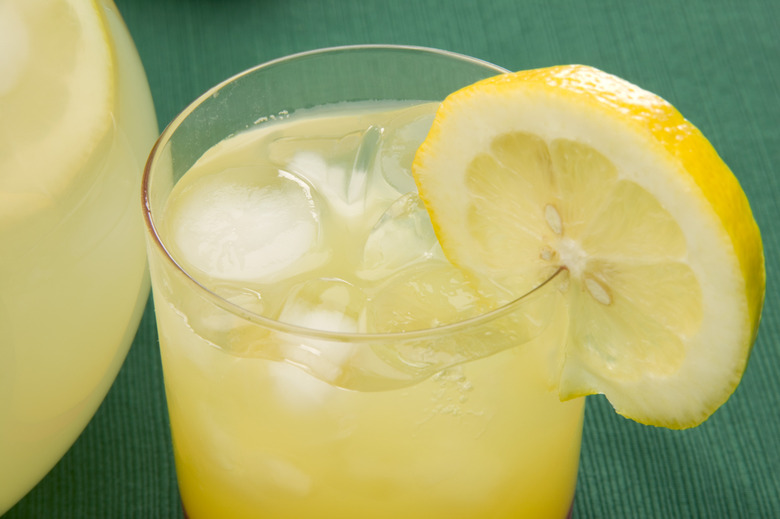Why Does Lemon Juice Turn Paper Brown?
Lemon juice has properties that turn paper brown when heated. That is why it is used in the invisible ink science experiment. The acid in lemon juice keeps peeled fruit, like apples and pears, from browning.
History
History
Lemon juice tastes sour and is an acid. Writer and amateur chemist Andrew Boyle first labeled substances as acids or bases in the seventeenth century.
Significance
Significance
Lemon juice mixed with water can be used to write a message on a white piece of paper. Use a cotton swab to write the message.
Function
Function
When the lemon juice dries on the paper it is invisble. The juice is made up of 5 to 7 percent citric acid, 2 to 3 percent sugar and vitamins.
Features
Features
Heat the paper near a lightbulb from a lamp and the message will turn brown. The carbon compound in lemon juice is colorless when mixed with water.
Effects
Effects
When the lemon juice is heated with the light bulb the carbon compounds break down. This produces carbon which is black or brown. The compound reacts with air which causes oxidation a chemical reaction.
Cite This Article
MLA
Russell, Joan. "Why Does Lemon Juice Turn Paper Brown?" sciencing.com, https://www.sciencing.com/lemon-juice-turn-paper-brown-5849998/. 24 April 2017.
APA
Russell, Joan. (2017, April 24). Why Does Lemon Juice Turn Paper Brown?. sciencing.com. Retrieved from https://www.sciencing.com/lemon-juice-turn-paper-brown-5849998/
Chicago
Russell, Joan. Why Does Lemon Juice Turn Paper Brown? last modified August 30, 2022. https://www.sciencing.com/lemon-juice-turn-paper-brown-5849998/
